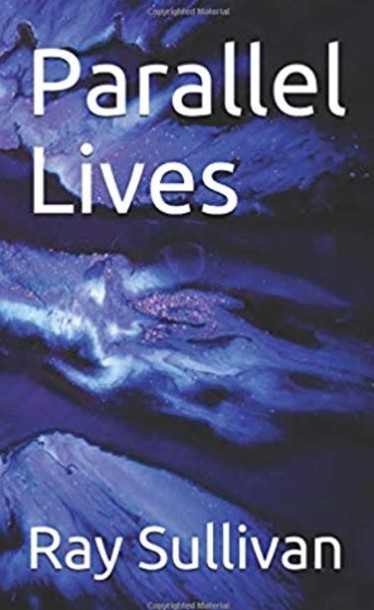Interview with Ray Sullivan
Author of Parallel Lives
Ray Sullivan is a British author born and raised in north Wales. He completed a 24 year military career in the Royal Air Force before returning to north Wales to work in the public and private sector. He is currently a lecturer in aeronautical engineering when not writing. Ray's writing is impossible to pidgeon-hole - his novels range from sci-fi, to military adventure to comedic. His latest book is Hotel California, a dark comedy thriller.
Buy this book
How would you describe Parallel Lives to a new reader?
- It's Science Fiction inspired by the books of Michio Kaku, particularly 'Hyperspace', a book that introduced me to string theory and multiverse theory. It also makes n-dimensional beings sound commonplace - and maybe they are - in a book accessible by anyone with a moderate degree of scientific understanding.
Don't worry, I leave the mathematics and science theory to Mr Kaku, but the book explores multiverse theory from a perspective that possibly, maybe, we exist in one or more of the alternative universes that should exist under the theory (possibly an infinite amount of alternative universes), and that under certain circumstances it is possible to 'connect' with your alternative selves. Not an altogether original idea, granted, and this was my first attempt at writing a full length novel so reusing concepts helped me forge my writing style.
However this is also a good old fashioned thriller, with sky-high stakes to consider. It also has a twist in the story that I didn't see myself until I wrote it - that might seem bizarre, but there came a point that I realised the story had a dimension I hadn't fully factored in consciously, but nonetheless was there. I'm not going to reveal the twist - some readers seem to whizz past it and not register it, but it makes the overall story very compelling.
To what extent is Parallel Lives based on your own experiences?
- I'm not a theoretical physicist, I'm not any kind of physicist. At the time of writing the book I was devouring a huge amount of books on the subject and now, fifteen years later, find myself teaching physics to aeronautical engineering students.
But one part of the story is based on that sensation we've all had, walking into a room and knowing we've been there before even though we know we haven't. That sensation that we know what someone is going to say or do as if it was something we'd seen before. If we exist in parallel universes and make similar, but subtlety different choices some of the time then our lives are going to be similar. If that shared experience could somehow breach the boundaries of parallel universes - it's been claimed that the only material that could pass from one universe to another is information - and there was a mechanism in the universe to alert some people to that experience then possibly that is where Deja Vu originates.
Parallel Lives was your first novel. If you wrote it today, how would it change?
- I've often considered a full rewrite, and start the process off by re-reading the book. My writing style has changed over the years, I think I write more simply than in my earlier books. Also some of the concepts are looking a little dated now - I make a big thing about number plate recognition which wasn't actually common knowledge at the time - I had links with guys who worked at a government research organisation at the time and immediately before I wrote the book. The technology wasn't strictly a State secret at the time of writing but it wasn't common knowledge either. I suspect it was used predominantly to track vehicles, as it is today, to fight crime and terrorism, however it's primary purpose today seems to be to manage car parks. So someone reading the book today would almost certainly wonder what all the fuss is about. Ultimately I still enjoy the story, the number plate element isn't a core plot driver and as it stands, it's still a good read.
You have a strong female character in Parallel Lives and in other books. Is this important to you?
- Absolutely. In most of my books the lead character is male, but strongly counterpointed by a female character. I'd write a female lead in a heartbeat but only if I felt I could do that authentically, so unfortunately, for now, I have female supports who put the leads on the right track and often sort their mess out for them. Pretty much as in real life.
Synopsis
John Staples remembers vividly the first time he died a child, and the many times he has died since. The last time was two years ago in a boiler explosion in the factory he now works in as a maintenance engineer, the same accident he’d tried to prevent and which had just seriously injured two of his work mates, one fatally, today.
John didn’t understand how or why he remembered dying but two rogue members of a super secret government agency recognised that John was a level three, a person who could access parallel dimensions and could act as a window on possible events before they happened. They contrive to hold John at government locations pumped full of drugs in an attempt to feed intelligence to a British government paranoid about terrorist threats in a world where the United Kingdom is increasingly at odds with its old ally, the United States.
It falls to John’s boss, Jack Howells and Jack’s wife Karen to rescue John and they find themselves pursued by various arms of the Secret Service as they elude capture.The fast paced, heart pumping finale culminates on a Devon cliff-top in a blizzard where John finally faces his destiny.

